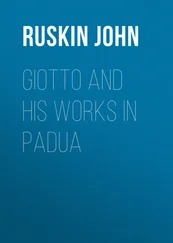John Ruskin - Selections From the Works of John Ruskin
Здесь есть возможность читать онлайн «John Ruskin - Selections From the Works of John Ruskin» — ознакомительный отрывок электронной книги совершенно бесплатно, а после прочтения отрывка купить полную версию. В некоторых случаях можно слушать аудио, скачать через торрент в формате fb2 и присутствует краткое содержание. Жанр: foreign_antique, foreign_home, literature_19, visual_arts, на английском языке. Описание произведения, (предисловие) а так же отзывы посетителей доступны на портале библиотеки ЛибКат.
- Название:Selections From the Works of John Ruskin
- Автор:
- Жанр:
- Год:неизвестен
- ISBN:нет данных
- Рейтинг книги:4 / 5. Голосов: 1
-
Избранное:Добавить в избранное
- Отзывы:
-
Ваша оценка:
- 80
- 1
- 2
- 3
- 4
- 5
Selections From the Works of John Ruskin: краткое содержание, описание и аннотация
Предлагаем к чтению аннотацию, описание, краткое содержание или предисловие (зависит от того, что написал сам автор книги «Selections From the Works of John Ruskin»). Если вы не нашли необходимую информацию о книге — напишите в комментариях, мы постараемся отыскать её.
Selections From the Works of John Ruskin — читать онлайн ознакомительный отрывок
Ниже представлен текст книги, разбитый по страницам. Система сохранения места последней прочитанной страницы, позволяет с удобством читать онлайн бесплатно книгу «Selections From the Works of John Ruskin», без необходимости каждый раз заново искать на чём Вы остановились. Поставьте закладку, и сможете в любой момент перейти на страницу, на которой закончили чтение.
Интервал:
Закладка:
Amidst the maze of subjects, then, which Ruskin, with kaleidoscopic suddenness and variety, brings before the astonished gaze of his readers, let them confidently hold this guiding clue. They will find that Ruskin's "facts" are often not facts at all; they will discover that many of Ruskin's choicest theories have been dismissed to the limbo of exploded hypotheses; but they will seek long before they find a more eloquent and convincing plea for the proposition that all great art reposes upon a foundation of personal and national greatness. Critics of Ruskin will show you that he began Modern Painters while he was yet ignorant of the classic Italians; that he wrote The Stones of Venice without realizing the full indebtedness of the Venetian to the Byzantine architecture; that he proposed to unify the various religious sects although he had no knowledge of theology; that he attempted a reconstruction of society though he had had no scientific training in political economy; but in all this neglect of mere fact the sympathetic reader will discover that contempt for the letter of the law which was characteristic of the nineteenth-century prophet,—of Carlyle, of Arnold, and of Emerson,—and which, if it be blindness, is that produced by an excess of light.
III
RUSKIN'S STYLE
Many people regard the style of Ruskin as his chief claim to greatness. If the time ever come when men no longer study him for sermons in stones, they will nevertheless turn to his pages to enjoy one of the most gorgeous prose styles of the nineteenth century. For a parallel to the sensuous beauties of Ruskin's essays on art, one turns instinctively to poetry; and of all the poets Ruskin is perhaps likest Keats. His sentences, like the poet's, are thick-set with jeweled phrases; they are full of subtle harmonies that respond, like a Stradivarius, to the player's every mood. In its ornateness Ruskin's style is like his favorite cathedral of Amiens, in the large stately, in detail exquisite, profuse, and not without a touch of the grotesque. It is the style of an artist.
A critical fancy may even discover in the construction of his finest descriptions a method not unlike that of a painter at work upon his canvas. He blocks them out in large masses, then sketches and colors rapidly for general effects, treating detail at first more or less vaguely and collectively, but passing in the end to the elaboration of detail in the concrete, touching the whole with an imaginative gleam that lends a momentary semblance of life to the thing described, after the manner of the "pathetic fallacy." Thus it is in the famous description of St. Mark's: 11 11 See p. 162.
we are given first the largest general impression, the "long, low pyramid of coloured light," which the artist proceeds to "hollow beneath into five great vaulted porches," whence he leads the eye slowly upwards amidst a mass of bewildering detail—"a confusion of delight"—from which there slowly emerge those concrete details with which the author particularly wishes to impress us, "the breasts of the Greek horses blazing in their breadth of golden strength and St. Mark's lion lifted on a blue field covered with stars." In lesser compass we are shown the environs of Venice, 12 12 See p. 139.
the general impression of the "long, low, sad-coloured line," being presently broken by the enumeration of unanalyzed detail, "tufted irregularly with brushwood and willows," and passing to concrete detail in the hills of Arqua, "a dark cluster of purple pyramids." In the still more miniature description of the original site of Venice 13 13 See p. 147.
we have the same method:
"The black desert of their shore lies in its nakedness beneath the night, pathless, comfortless, infirm, lost in dark languor and fearful silence, except where the salt runlets plash into the tideless pools and the sea-birds flit from their margins with a questioning cry."
Equally characteristic of the painter is the ever-present use of color. It is interesting merely to count the number and variety of colors used in the descriptions. It will serve at least to call the reader's attention to the felicitous choice of words used in describing the opalescence of St. Mark's or the skillful combination of the colors characteristic of the great Venetians in such a sentence as, "the low bronzed gleaming of sea-rusted armor shot angrily under their blood-red mantle-folds" 14 14 See p. 121.
—a glimpse of a Giorgione.
He is even more attentive to the ear than to the eye. He loves the sentence of stately rhythms and long-drawn harmonies, and he omits no poetic device that can heighten the charm of sound,—alliteration, as in the famous description of the streets of Venice,
"Far as the eye could reach, still the soft moving of stainless waters proudly pure; as not the flower, so neither the thorn nor the thistle could grow in those glancing fields"; 15 15 See p. 122.
the balanced close for some long period,
"to write her history on the white scrolls of the sea-surges and to word it in their thunder, and to gather and give forth, in the world-wide pulsation, the glory of the West and of the East, from the burning heart of her Fortitude and splendour"; 16 16 See p. 149.
and the tendency, almost a mannerism, to add to the music of his own rhythm, the deep organ-notes of Biblical text and paraphrase. But if we wish to see how aptly Ruskin's style responds to the tone of his subject, we need but remark the rich liquid sentence descriptive of Giorgione's home,
"brightness out of the north and balm from the south, and the stars of evening and morning clear in the limitless light of arched heaven and circling sea," 17 17 See p. 122.
which he has set over against the harsh explosiveness of
"Near the south-west corner of Covent Garden, a square brick pit or wall is formed by a close-set block of house to the back windows of which it admits a few rays of light—"
the birthplace of Turner.
But none knew better than Ruskin that a style so stiff with ornament was likely to produce all manner of faults. In overloading his sentences with jewelry he frequently obscures the sense; his beauties often degenerate into mere prettiness; his sweetness cloys. His free indulgence of the emotions, often at the expense of the intellect, leads to a riotous extravagance of superlative. But, above all, his richness distracts attention from matter to manner. In the case of an author so profoundly in earnest, this could not but be unfortunate; nothing enraged him more than to have people look upon the beauties of his style rather than ponder the substance of his book. In a passage of complacent self-scourging he says:
"For I have had what, in many respects, I boldly call the misfortune, to set my words sometimes prettily together; not without a foolish vanity in the poor knack that I had of doing so, until I was heavily punished for this pride by finding that many people thought of the words only, and cared nothing for their meaning. Happily, therefore, the power of using such language—if indeed it ever were mine—is passing away from me; and whatever I am now able to say at all I find myself forced to say with great plainness." 18 18 The Mystery of Life .
But Ruskin's decision to speak with "great plainness" by no means made the people of England attend to what he said rather than the way he said it. He could be, and in his later work he usually was, strong and clear; but the old picturesqueness and exuberance of passion were with him still. The public discovered that it enjoyed Ruskin's denunciations of machinery much as it had enjoyed his descriptions of mountains, and, without obviously mending its ways, called loudly for more. Lecture-rooms were crowded and editions exhausted by the ladies and gentlemen of England, whose nerves were pleasantly thrilled with a gentle surprise on being told that they had despised literature, art, science, nature, and compassion, and that what they thought upon any subject was "a matter of no serious importance"; that they could not be said to have any thoughts at all—indeed, no right to think. 19 19 Sesame and Lilies , "Kings' Treasuries," §§ 25, 31.
The fiercer his anathemas, the greater the applause; the louder he shouted, the better he pleased. Let him split the ears of the groundlings, let him out-Herod Herod,—the judicious might grieve, but all would be excitedly attentive. Their Jeremiah seemed at times like to become a jester,—there was a suggestion of the ludicrous in the sudden passage from birds to Greek coins, to mills, to Walter Scott, to millionaire malefactors,—a suggestion of acrobatic tumbling and somersault; but he always got a hearing. In lecturing to the students of a military academy he had the pleasing audacity to begin:
Интервал:
Закладка:
Похожие книги на «Selections From the Works of John Ruskin»
Представляем Вашему вниманию похожие книги на «Selections From the Works of John Ruskin» списком для выбора. Мы отобрали схожую по названию и смыслу литературу в надежде предоставить читателям больше вариантов отыскать новые, интересные, ещё непрочитанные произведения.
Обсуждение, отзывы о книге «Selections From the Works of John Ruskin» и просто собственные мнения читателей. Оставьте ваши комментарии, напишите, что Вы думаете о произведении, его смысле или главных героях. Укажите что конкретно понравилось, а что нет, и почему Вы так считаете.












